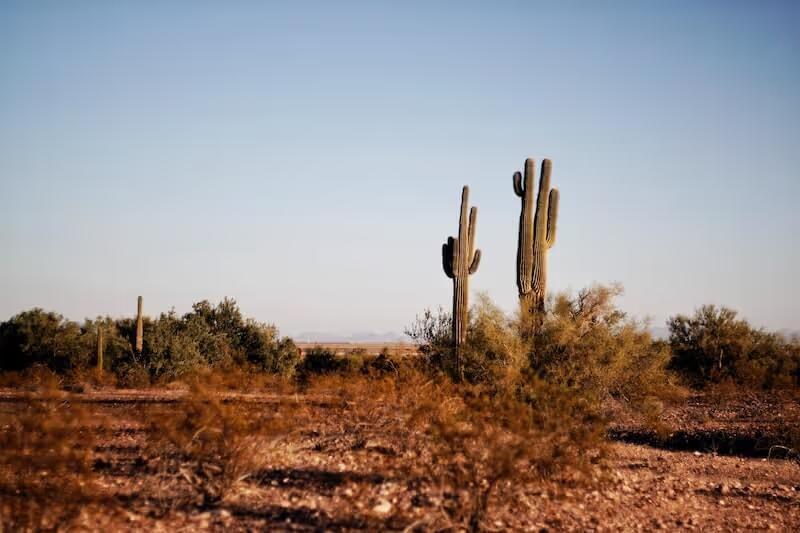A last will and testament is a legal document that lets you decide what happens with your estate after you die. Yet, according to Caring.com's 2025 estate planning study, less than a quarter of Americans have a will.
If you're among them, you should know that wills aren't just for the sick or elderly — in fact, every adult should have one.
When you die without a will, you leave important decisions up to a local court and your state's laws. You won't have a say in who receives your property and other assets (including your pets). If you have children, you miss out on the opportunity to nominate a trusted, responsible guardian for them. Plus, not having a will can make it more difficult for your loved ones after you pass away.
Here are the top ten reasons you should make a will today:
1. Save time, money, and stress for your loved ones.
Almost all estates have to go through probate court to start the legal process overseeing the distribution of assets. But when you don't have a will, this court process — known as intestate administration — can get especially complicated. Without a will, the court has to choose someone to administer your estate. This can be time-consuming, expensive, and even contentious for your loved ones.
One of the top reasons to have a will is to streamline this court process. When you have a will, you can choose the person you want to handle your estate, making it easier for your loved ones.
2. Determine who will manage your estate.
Deciding who will handle your estate is a great reason to have a will. This person is called your executor and will be in charge of wrapping up all your affairs.
Being an executor is an important job. Their responsibilities include closing financial accounts, liquidating assets, settling debts, and communicating with your family and others listed in your will.
You should choose someone who is capable and who you trust to carry out these activities. If you don't choose an executor in your will, the court will pick one for you — and it may not be the person you'd want, or the person best suited to handle the job.
3. Decide who gets your assets and property — and who does not.
Most people know that a will lets them decide who will get their property. When you write your will, you can name people as beneficiaries for specific assets. When your executor handles your will, they're in charge of distributing these assets according to your instructions.
You can also name beneficiaries for any property that you don't specifically list in your will. This is called the "residuary" of your estate.
In addition, you can use your will to ensure that certain people don't receive anything. For example, you might want to prevent an ex-spouse from receiving an inheritance. Or, if one child received your support through school, you might want to make sure a second child gets their fair share, too.
Making a will ensures your property goes to the people you choose — friends, family, or otherwise. Without one, the state decides who gets your things based on intestate laws, which may not reflect your wishes.
4. Choose who will take care of your minor children.

If you're a parent, you can use your will to nominate a legal guardian for your minor children. The surviving parent will usually get sole legal custody if one parent dies. But if both parents pass, this is one of the most important reasons to have a will.
A guardian will be responsible for all your children's daily needs, and will provide food, housing, health care, education, and clothing. If you don't nominate a guardian in your will, a court will have to choose one for you. This could mean that someone you would not have chosen will end up raising your kids.
5. Provide a home for your pets.
Owning a pet is a great reason to have a will. With a will, you can nominate a pet guardian who will care for your pet after you die.
The law considers pets to be property, so you can't leave any assets to your pet in your will. But by naming a guardian for your pet, you can leave them with a trusted friend, family member, or even a humane organization. In your will, you can provide instructions for your pet's care and even set aside funds to support the person carrying them out.
6. Leave instructions for your digital assets.
Americans have an average of more than 100 online accounts — and as our lives become more digital, that number continues to grow. As a result, it’s a good idea to address these accounts in your will.
Digital assets can include online accounts, such as Facebook or email, as well as digital files or property (photos, videos, domain names you own, etc).
In your will, you can name a digital executor to manage these assets after you pass away. You can leave assets to specific people, and also explain how you want your accounts handled (for example, perhaps you'd like your social media accounts closed or memorialized).
7. Lower the potential for family disputes.
Protecting your family's peace is an important — and kind — reason to have a will.
When you die without a will, your family has to guess what your final wishes were. And chances are, they won't always agree. This ambiguity can create friction, fights, and heartache that can last a lifetime. By creating a will, you can eliminate the guesswork, prevent disputes, and give your loved ones the peace of mind that they understand your wishes.
8. Support your favorite causes and leave a legacy.
Many people want to leave a positive impact on the world after they pass. And a great way to do this is to support the charities or causes you love most. When you write a will, you can preserve your legacy by leaving a part of your estate to a charitable organization.
If you use FreeWill to make your will, this is easy to do. Our free will-making tool allows you to select your favorite causes with just a few clicks, and fills in important information like the organization’s EIN and address so your executor knows exactly where to send your donation when the time comes.
9. Provide funeral instructions.
We get it — it can be uncomfortable to think about your own funeral. But if you do think about it now, and leave instructions with your will, you can lessen the burden on your loved ones after you pass. While these instructions aren’t legally binding, they can give your executors and loved ones some guidance on your wishes.
When you include instructions, you can name a funeral executor to manage the process, give suggestions for the service and location, make requests for your final resting place, and more. This can ease the burden on loved ones who are already overwhelmed by grief and the logistics of funeral planning.
10. It's easy to do.
Many people think making a will is a complicated, expensive legal process. In reality, with today’s technology, it’s never been easier to make a will. There are dozens of online and offline resources to help you make a will (here's a comparison of six will-making options and their prices).
One option is to use an online platform like FreeWill. Our free online will-maker is easy to follow, customized to you, and includes guidelines specific to the state where you live. It’s also completely free and can take as little as 20 minutes to complete.
Make a will and gain peace of mind.
People put off making a will for all kinds of reasons. Some think wills are only for people who are old and sick. Others think they’re not rich enough for a will. Still others assume their family knows their wishes and will automatically get an inheritance.
In reality, everyone should have a will, no matter their age or wealth.
Probate can be a long and expensive process for your heirs even if you have a simple estate. And even if your family knows your wishes, they’ll be powerless to fulfill them if you don’t create a will.
When you make a will, you can protect your loved ones, donate to the causes you care about, and take control of your legacy. If you're ready, you can make your will for free using FreeWill and gain the ultimate peace of mind.
Make your free estate plan today

Make your free advance healthcare directive

Make your free durable power of attorney

Make a stock donation today

Make your free revocable living trust









